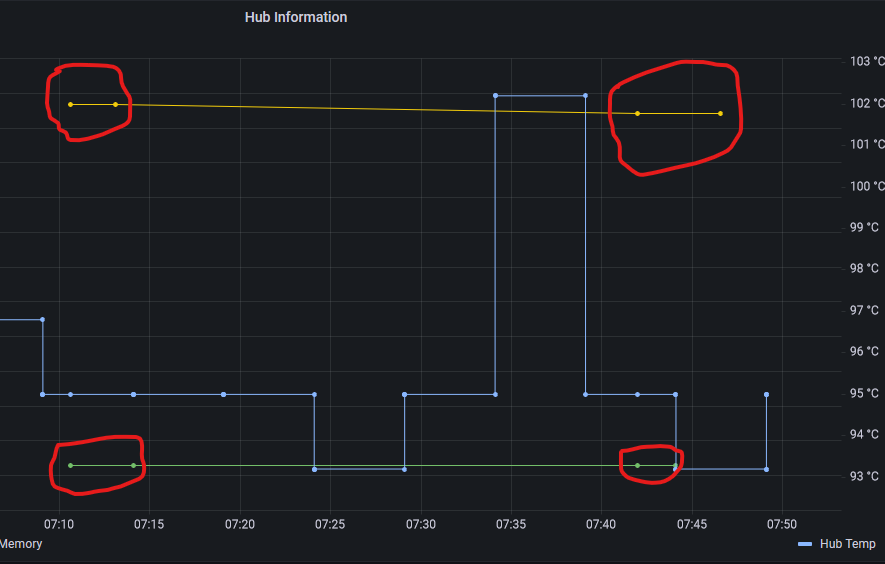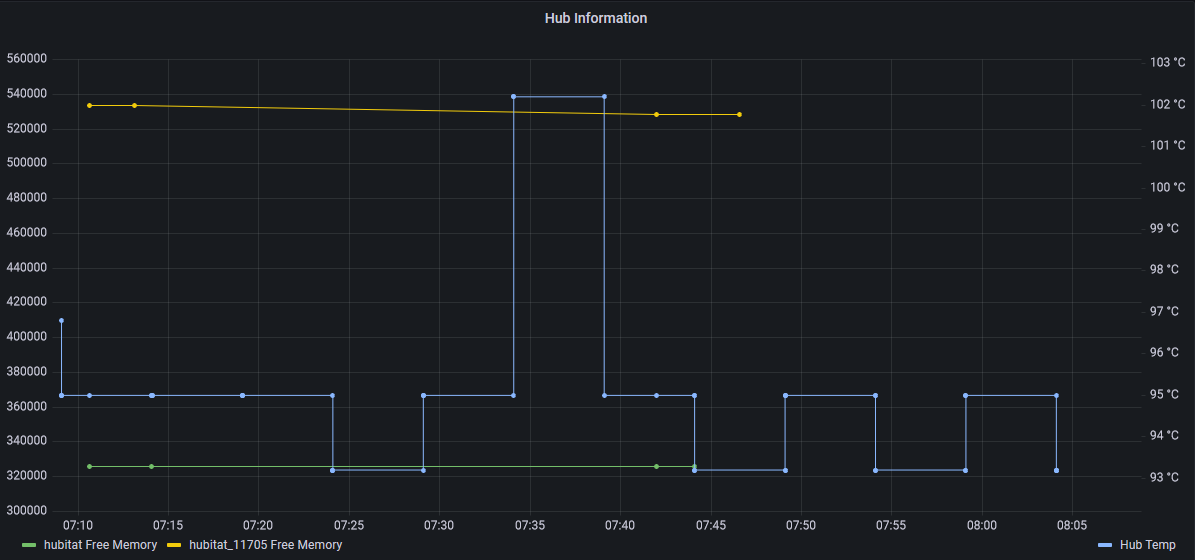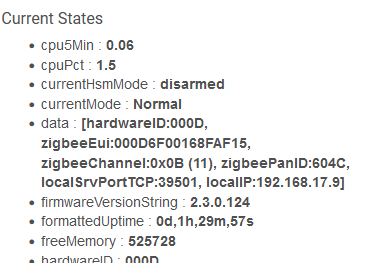@toggledbits I wasn't expecting a reply until you got back from vacation and handled other higher priority things, but I'll try to add the additional information now:
What I'm expecting is that each time the data on the Hubitat Hub Information device changes, that the values for that I added in my reactor.yaml file (cpu5Min, cpuPct, freeMemory) will be written to the influx database. This is what it was doing up until two days ago, and I think the change in behavior matches up to when I upgraded to 22067.
The Grafana queries are not using aggregates, nor was the direct query I ran from Influx via the command line, but I should have posted the query I used to pull the data. Here is data I just pulled directly from Influx using a command prompt, filtering on only one hub to make it simpler:
> select * from x_hubitat_extra_attributes where entity = 'hubitat>483' order by time desc limit 6
name: x_hubitat_extra_attributes
time controller cpu5Min cpuPct entity freeMemory name
---- ---------- ------- ------ ------ ---------- ----
1646918045910000000 hubitat 0.23 5.75 hubitat>483 324088 Hub information
1646918032714000000 hubitat 0.23 5.75 hubitat>483 324088 Hub information
1646916245576000000 hubitat 3 hubitat>483 325848 Hub information
1646916119494000000 hubitat 3 hubitat>483 325848 Hub information
1646914445106000000 hubitat 0.11 2.75 hubitat>483 325904 Hub information
1646914238104000000 hubitat 0.11 2.75 hubitat>483 325904 Hub information
Starting from the bottom of the list with the oldest two records, they are about 4 minutes apart but show the exact same numbers.
The next two records again are about 4 minutes apart and show the same numbers.
The top two records are about 1 minute apart and show the same numbers.
Between each pair of logged values I restarted Reactor. On the last set - the top two in this list - I was watching the Reactor Entities screen and saw that the Hub Information entity updated at the time the last data point was stored, but the values were NOT 0.23, 5.75, and 324088.
I can upload logs when you get back. I looked at the times in the log when this data was stored and I don't see anything related to Influx. I do see the updates coming from the Hub Information device.
I was able to find the logs corresponding to the two records in the middle (showing 325848 as the freeMemory)
The timestamp on the older one converts to: Thursday, March 10, 2022 12:41:59.494 PM
In the logs I find the value for the freeMemory a few minutes earlier at 12:39:05Z. I think the time discrepancy is because I restarted Reactor between when the value was logged and when it got written to the database. When Reactor started up, it wrote the most recent value to Influx.
[latest-22067]2022-03-10T12:39:05.568Z <HubitatController#hubitat:5:HubitatController.js:641> HubitatController#hubitat received DEVICE event [Object]{ "source": "DEVICE", "name": "freeMemory", "displayName": "Hub information", "value": "325848", "type": "null", "unit": "KB", "deviceId": 483, "hubId": 0, "installedAppId": 0, "descriptionText": "null" }
[latest-22067]2022-03-10T12:39:05.569Z <HubitatController#hubitat:INFO> HubitatController#hubitat fast update Entity#hubitat>483 event freeMemory="325848"
[latest-22067]2022-03-10T12:39:05.569Z <HubitatController#hubitat:INFO> HubitatController#hubitat fast update Entity#hubitat>483 event freeMemory="325848"
The next record from the database with the same values has a timestamp that converts to Thursday, March 10, 2022 12:44:05.576 PM
That matches up in the logs with this:
[latest-22067]2022-03-10T12:44:05.632Z <HubitatController#hubitat:5:HubitatController.js:641> HubitatController#hubitat received DEVICE event [Object]{ "source": "DEVICE", "name": "freeMemory", "displayName": "Hub information", "value": "325884", "type": "null", "unit": "KB", "deviceId": 483, "hubId": 0, "installedAppId": 0, "descriptionText": "null" }
[latest-22067]2022-03-10T12:44:05.633Z <HubitatController#hubitat:5:HubitatController.js:643> HubitatController#hubitat ws DEVICE event device 483 freeMemory="325884"
[latest-22067]2022-03-10T12:44:05.633Z <HubitatController#hubitat:INFO> HubitatController#hubitat fast update Entity#hubitat>483 event freeMemory="325884"
So at 12:44:05 I'm expecting the freeMemory written to the database to be 325884, but the database query returned 325848, the previous value from a few minutes earlier in the logs.
The next instance of the hub freeMemory in the logs is at 12:49:05Z
[latest-22067]2022-03-10T12:49:05.763Z <HubitatController#hubitat:5:HubitatController.js:641> HubitatController#hubitat received DEVICE event [Object]{ "source": "DEVICE", "name": "freeMemory", "displayName": "Hub information", "value": "325664", "type": "null", "unit": "KB", "deviceId": 483, "hubId": 0, "installedAppId": 0, "descriptionText": "null" }
[latest-22067]2022-03-10T12:49:05.764Z <HubitatController#hubitat:5:HubitatController.js:643> HubitatController#hubitat ws DEVICE event device 483 freeMemory="325664"
[latest-22067]2022-03-10T12:49:05.765Z <HubitatController#hubitat:INFO> HubitatController#hubitat fast update Entity#hubitat>483 event freeMemory="325664"
There is no corresponding record in the Influx database. I would expect an entry with freeMemory of 325664.
There are additional logs showing the Hubitat Hub Information device updating values every few minutes, but nothing was added to the database until after 1:13:52Z when I restarted Reactor. Then I got the two entries showing a freeMemory of 324088, but as with the middle two record in the query results, the second one of the pair is wrong. The last (top of the list) data in the database shows freeMemory of 324088 and its timestamp converts to Thursday, March 10, 2022 1:14:05.910 PM
The log shows:
[latest-22067]2022-03-10T13:14:05.943Z <HubitatController#hubitat:5:HubitatController.js:641> HubitatController#hubitat received DEVICE event [Object]{ "source": "DEVICE", "name": "freeMemory", "displayName": "Hub information", "value": "323712", "type": "null", "unit": "KB", "deviceId": 483, "hubId": 0, "installedAppId": 0, "descriptionText": "null" }
[latest-22067]2022-03-10T13:14:05.945Z <HubitatController#hubitat:5:HubitatController.js:643> HubitatController#hubitat ws DEVICE event device 483 freeMemory="323712"
[latest-22067]2022-03-10T13:14:05.945Z <HubitatController#hubitat:INFO> HubitatController#hubitat fast update Entity#hubitat>483 event freeMemory="323712"
I would have expected the database entry at 13:14:05Z to show 323712 as the freeMemory value.
I haven't restarted Reactor since then, and as I type this several hours later, no new data for these attributes has made it into the database.






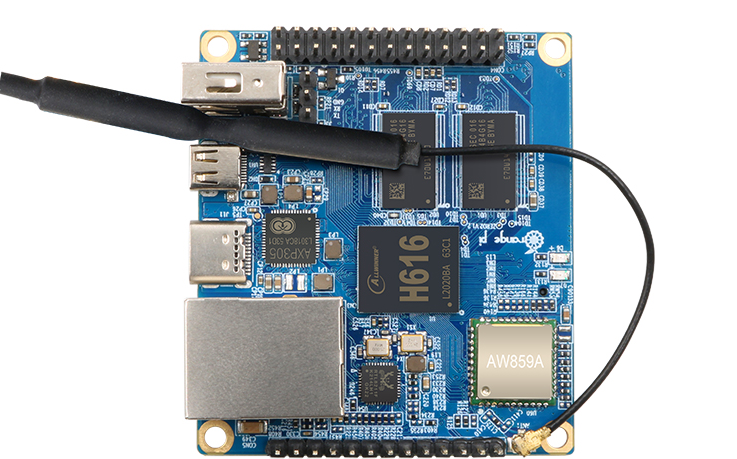







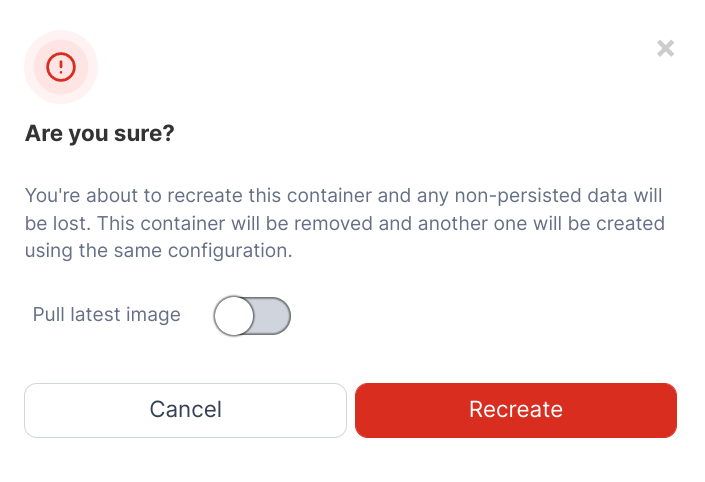

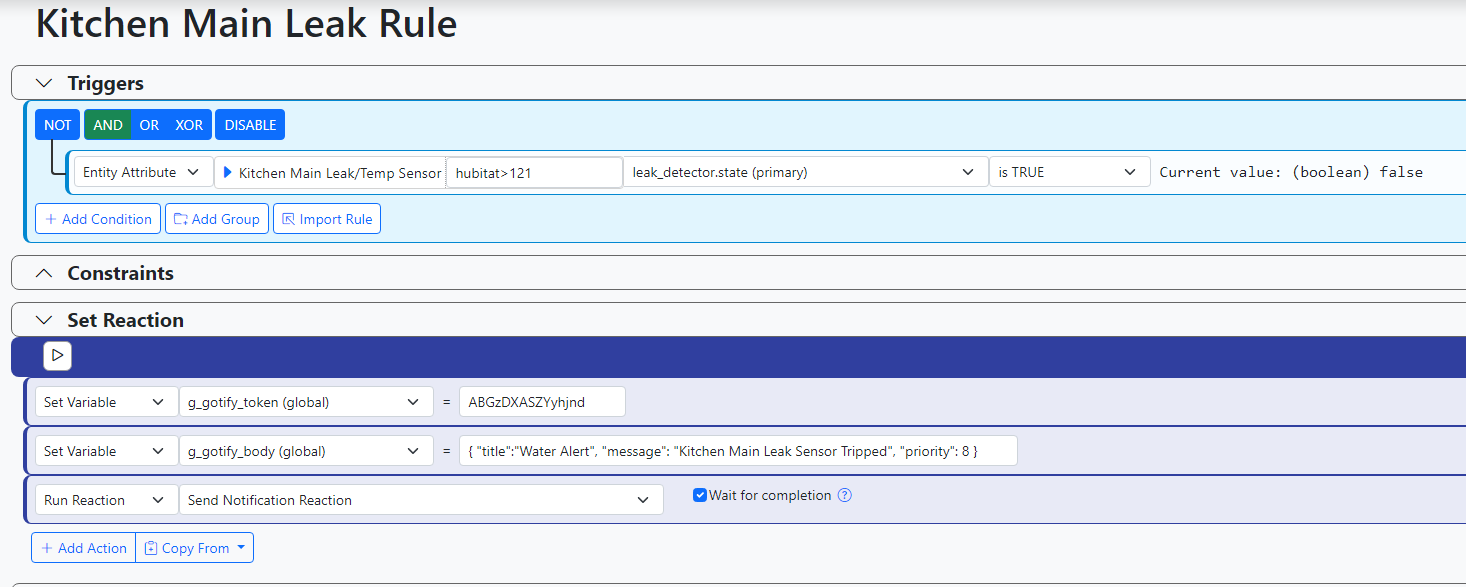
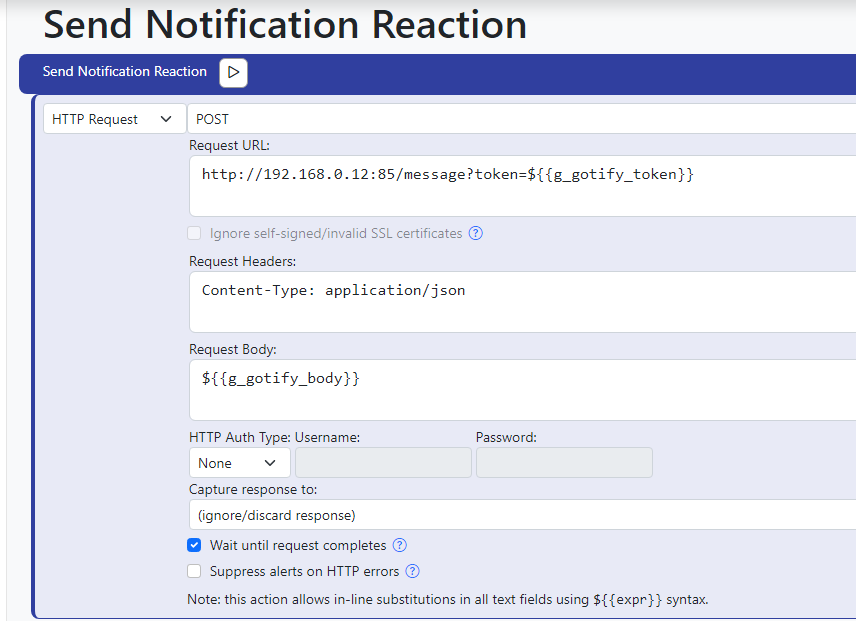
 ). I think it would have to be two rules. That way each rule is firing at one specific date and time and you wouldn't be trying to create a rule that is active at all dates and times between DST start and DST end, which I think leads you down the OP's path using latching. If you have one rule with a reset action there's no need for the expression, you could just use the rule state to tell if it's DST.
). I think it would have to be two rules. That way each rule is firing at one specific date and time and you wouldn't be trying to create a rule that is active at all dates and times between DST start and DST end, which I think leads you down the OP's path using latching. If you have one rule with a reset action there's no need for the expression, you could just use the rule state to tell if it's DST.